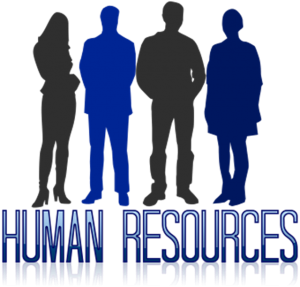Common names were given to jobs HR Managers Hold
Managers of human resources act as intermediaries between employees and their respective companies. Because it is difficult for an organization to function without the people who work inside it, they are involved in every single facet of what the company does.
There is a wide variety of specialized and generalist employment available in human resources. The following are three frequent titles for HR managers, however, responsibilities can vary greatly depending on the industry and employer:
A recruitment manager is someone who manages the work of a staff of recruiters and is responsible for overseeing an organization’s hiring needs, this may involve HR recruitment or general recruitment.
The training and development manager is responsible for developing training and development programs for both new workers and those who have been with the company for some time.
A human resources manager is someone who oversees the operations of an HR department or a subset of HR management.
Managers of human resources act as intermediaries between employees and their respective companies. Because it is difficult for an organization to function without the people who work inside it, they are involved in every single facet of what the company does.
What are the Duties and Responsibilities of HR Managers, and What Do They Do?
In most cases, managers of human resources are generalists who are responsible for managing a number of different departments. However, in larger companies, human resources managers may be experts who are in charge of a team of other HR professionals. Regardless of the structure of an organization, HR managers always have the same general tasks, which are as follows:
Job analysis is the process of defining the nature of employment, including their duties and responsibilities, as well as the competencies and expertise required for such positions.
The processes of recruitment and staffing: Finding, interviewing, and ultimately choosing the best possible applicants to fill a position in order to fulfil the requirements of an organization
The workforce in terms of its organization and utilization: Developing a structure for the business that makes the most use of its available human resources and sets up channels of communication
Keeping the workforce up and running: addressing concerns regarding health, safety, and worker management, as well as ensuring compliance with any federal regulations regarding the workplace
Instruction and further education: determining the educational requirements of workers and developing courses to fulfil those requirements
Performance appraisal: The process of evaluating an employee’s performance on the job in order to offer feedback and to gather data for use in making decisions regarding promotions, wage increases, and termination of service
Employees are rewarded by: Developing staff incentive programs that recognize their successes and encourage them to maintain their current levels of productivity
Diversity, equity, and inclusion: all three are important. Developing systems and policies to guarantee that all applicants, workers, and customers are treated equally and without bias
Careers Starting Out in Human Resources
In most cases, candidates for HR management jobs are expected to have a bachelor’s degree. Having said that, it is feasible to qualify for entry-level employment in HR with an associate degree and then move into higher-level positions by gaining additional education and experience. The following are examples of typical beginning positions:
The clerk of human resources – They are responsible for administrative activities such as keeping personnel records updated, posting advertisements for open positions, and aiding with the onboarding process for new employees.
Benefits coordinator – These coordinators are responsible for administrative chores such as dealing with insurance and retirement schemes, as well as sick leave and vacation time.
Payroll clerk – These clerks are responsible for collecting and calculating data to assist in ensuring that employees are paid correctly and on time.
Recruiter – Despite the fact that entry-level recruiters are not authorized to make hiring choices, a recruiter is responsible for the day-to-day tasks related to obtaining job prospects.
Functions of HR Management
A bachelor’s degree and around three years of professional experience in human resources are normally required for candidates for the position of human resources manager. Among the most common titles are:
Managers of human resources devise and implement comprehensive plans and programs for the purpose of recruiting, hiring, onboarding, training, and terminating personnel. They are also responsible for planning and coordinating the activities of an organization’s personnel to ensure that the organization’s objectives are met.
Issues that occur between the workforce of an organization and management are the purview of the employees who manage employee relations. Their duties may include providing advice on both newly enacted and long-standing policies, drafting employment contracts, and ensuring compliance with applicable rules governing the workplace.
Remuneration in Addition to Perks The evaluation of occupations, as well as the formulation of pay scales and benefits packages, is under the purview of managers. In the course of their employment, they can be required to comply with labour laws and regulations that safeguard the employees’ health and safety.

